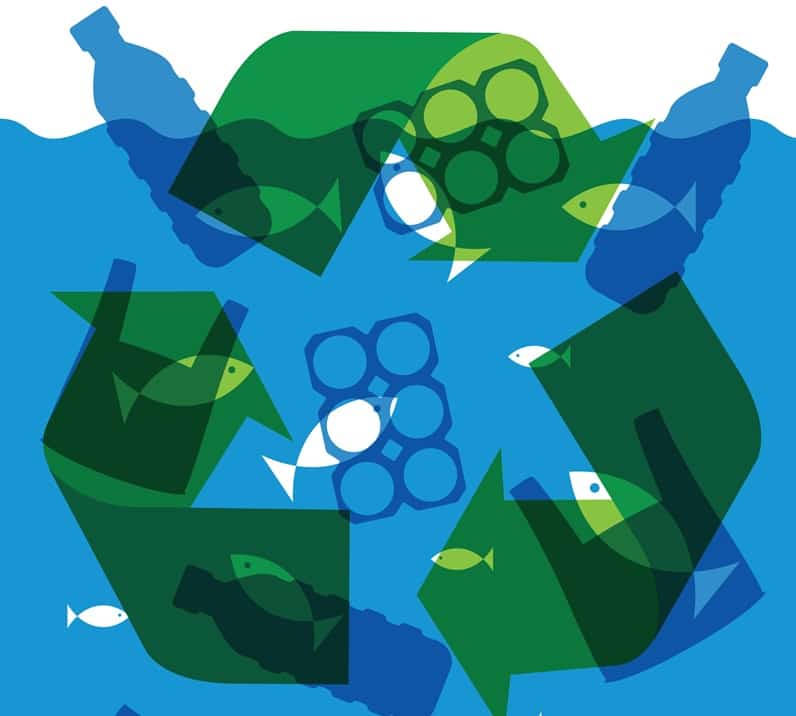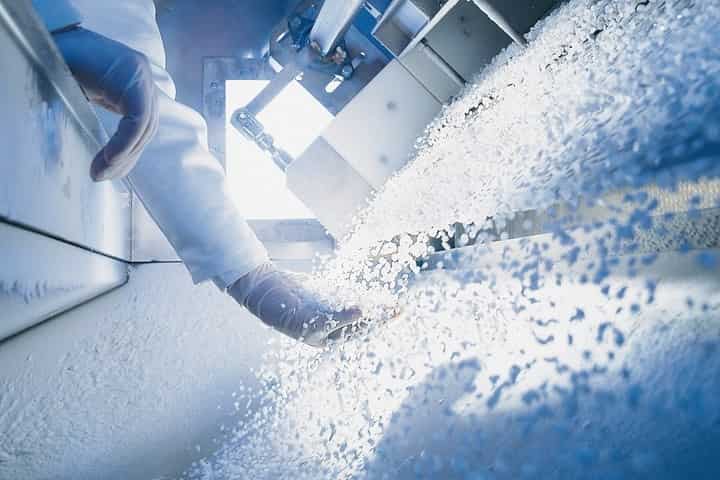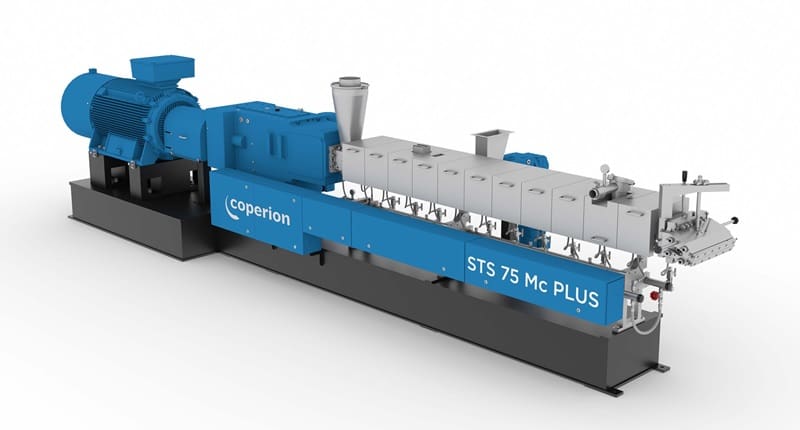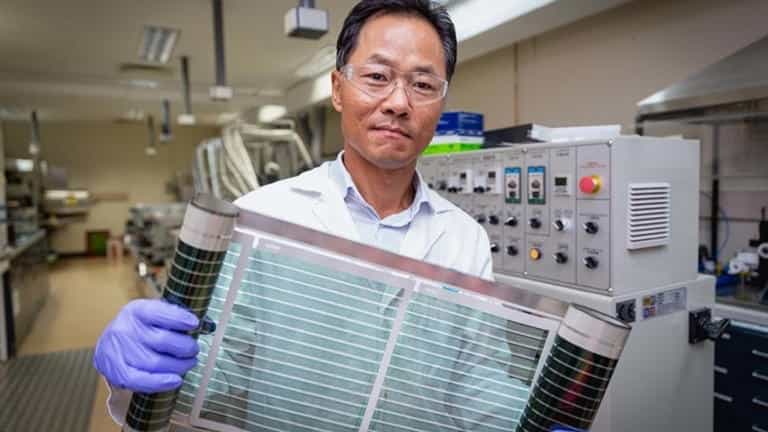Technical Polymers – CHT and Fulgar have forged a novel partnership, prioritizing sustainability in the textile industry 23-03-2024 - Arhive
CHT and Fulgar have forged a novel partnership, prioritizing sustainability in the textile industry
At the forthcoming Performance Days event in Munich on March 20 and 21, 2024, they will unveil CHT’s BeSo Responsible initiative, aimed at revolutionizing resource efficiency in textile dyeing.
BeSo, shorthand for “Best Solution,” offers versatile solutions adaptable to diverse performance and sustainability needs
The BeSo Responsible Shortcut process, a highlight of the project, innovatively dyes Fulgar’s Q-Cycle yarn while simultaneously fixing it in a single cycle, resulting in substantial time, water, and energy savings. Technical Polymers
CHT’s Bemacid acid dyes, like Bemacid N-TF and Bemacid F-T, further elevate the process by enhancing color fastness and overall yarn quality and durability.
Fulgar’s Q-Cycle, a 100% recycled polyamide fiber, employs a controlled mass balance approach without using virgin raw materials from crude oil. Instead, it relies on pyrolysis oil from end-of-life tires, slashing CO2 emissions by up to 50%.
The application of CHT’s Shortcut process to Q-Cycle ensures the same level of functionality, aesthetics, and comfort as products made from virgin polyamide, while championing environmental stewardship. Technical Polymers
In essence, this partnership between CHT and Fulgar pioneers sustainable solutions in textile manufacturing, embodying a commitment to both innovation and eco-consciousness.
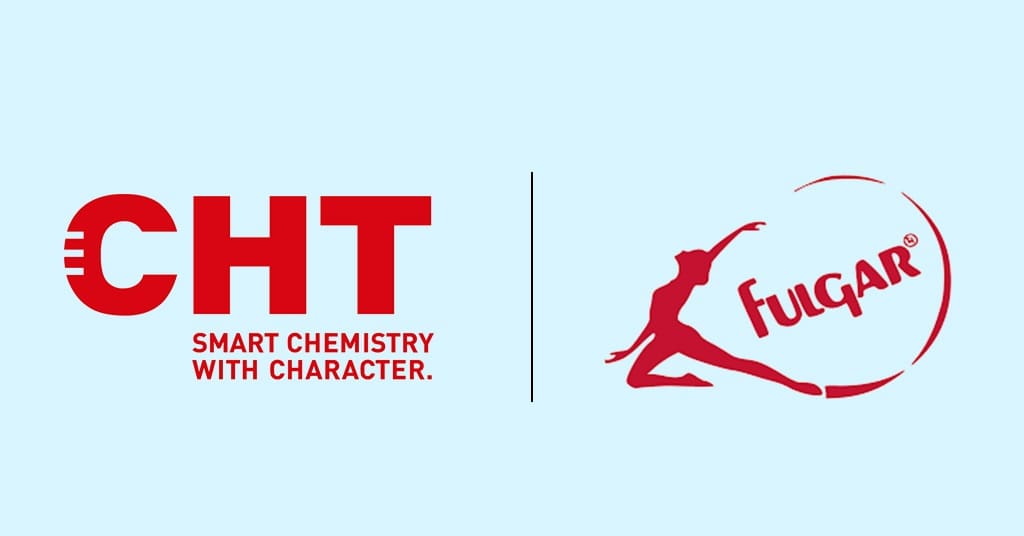
Piovan, based in Italy, concluded 2023 on a high note, particularly propelled by the Technical Polymers segment
The group achieved a remarkable turnover of €570.5 million, marking a 7.4% increase compared to the previous year (+4.6% under the same perimeter), with an adjusted EBITDA soaring to €78.9 million, up by 25.8%. Consolidated net profit surged by 40.5%, reaching €48.9 million, an increase of €14.1 million from 2022.
Nicola Piovan, the group’s executive president, expressed satisfaction with the results despite geopolitical uncertainties like the conflicts in Ukraine and the Middle East. He emphasized the strategic overhaul aimed at bolstering Piovan Group’s identity internationally and fostering integration. Technical Polymers
CEO Filippo Zuppichin highlighted the group’s resilience in capturing market share despite challenges, citing expansions in India and other emerging markets.
Technical Polymers, contributing 77% to the turnover, saw sales rise by 8.3%, driven by demand from technical, automotive, and medical sectors. While sales dipped in the Food & Industrial Applications (-9%), they surged in the Services segment (+13.8%).
Geographically, sales flourished in North America (+10%), Asia (+22.2%), and South America (+14.1%), while remaining stable in Europe (+0.2%). Technical Polymers
In 2023, Piovan expanded its global footprint by establishing branches in Indonesia and South Korea, acquiring assets of ProTec Polymer Processing in Germany, and gaining control of Nu-Vu Conair in India.
Listed on the Italian Stock Exchange, Piovan, headquartered in Santa Maria di Sala (VE), specializes in automation systems for polymers, plastics, and food powders, employing 1,800 people across 14 plants, with 91% of revenue from international markets.
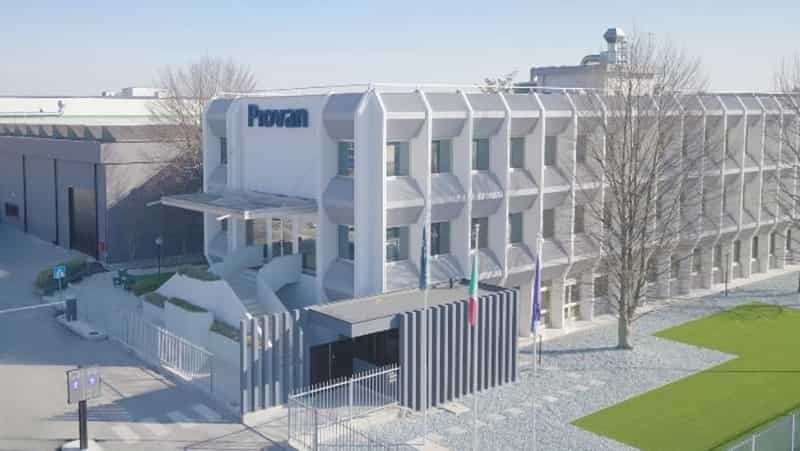
Netstal showcases its pinnacle injection molding prowess at the NPE (Booth W223), promising unrivaled productivity and efficiency in beverage closure production
Partnering with US client Alltrista®, Netstal unveils a cutting-edge production system, setting a new standard in closure manufacturing. Witness live the marvel of producing 26 mm water closures with a staggering 128-cavity mold, boasting an impressive cycle time of just 1.9 seconds. Technical Polymers
Central to this groundbreaking application is the CAP-Line, boasting a formidable clamping force of 4500 kN. Tailored specifically for closure applications, the CAP-Line represents Netstal’s commitment to optimized machinery. Built upon the robust Elios platform, the exhibition model comes equipped with a suite of features finely tuned for efficient closure production. Its all-electric clamping unit, boasting a swift dry cycle time of 1.4 seconds, facilitates blistering cycle times under 2 seconds. Enhanced by an optimized barrier screw and a smaller injection unit, the design ensures superior plasticizing performance and homogenization. Technical Polymers
Moreover, the CAP-Line offers customizable options for further optimization, including the intuitive Smart Operation control panel and adaptive system pressure reduction for added energy efficiency. Horst Kogler, Head of Business Unit Caps and Closures, underscores the customer-centric approach, stating, “With the new CAP-Line concept, we tailor our offerings precisely to our customers’ needs, expediting consultations and quotations to minimize machine delivery times.” Netstal’s CAP-Line sets a new benchmark, delivering bespoke solutions for closure manufacturers while streamlining the acquisition process for unparalleled efficiency. Technical Polymers
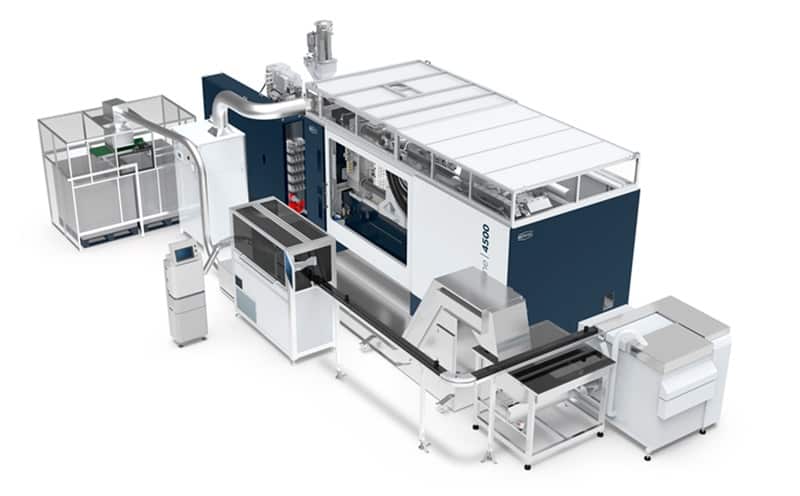
The primary discovery of the study reveals that circular plastics presently constitute 13.5% of newly manufactured plastic products in Europe
This statistic indicates a significant milestone, positioning the European plastics system at the halfway mark towards achieving its interim goal, as outlined in the ‘Plastics Transition’ roadmap. The aim set forth in this roadmap is to incorporate 25% of plastics sourced from circular channels into new products by the year 2030.
This finding underscores a noteworthy shift in the approach to plastic utilization within Europe, signaling a growing embrace of circularity principles. By integrating more recycled materials into the manufacturing process, the region is not only reducing its reliance on virgin plastics but also mitigating environmental impacts associated with plastic production and disposal. Technical Polymers
Moreover, achieving such a substantial proportion of circular plastics within the production stream demonstrates the feasibility of transitioning towards a more sustainable plastic economy. It suggests that with continued efforts and strategic initiatives, the European plastics industry can indeed meet its ambitious targets for circularity by the designated timeline.
This milestone serves as a testament to the efficacy of collaborative efforts between industry stakeholders, policymakers, and environmental advocates in driving meaningful change towards a more circular and environmentally conscious plastic ecosystem.
